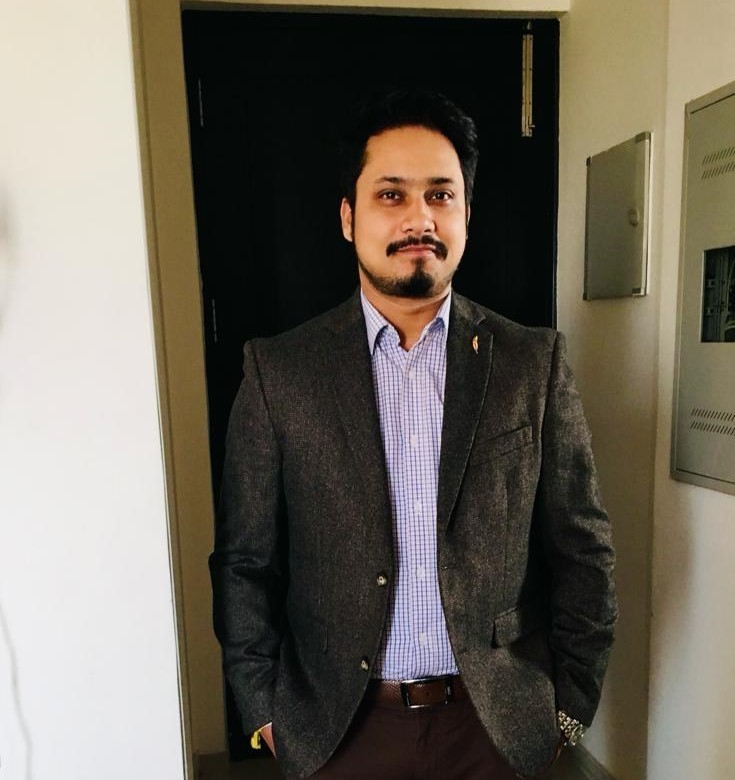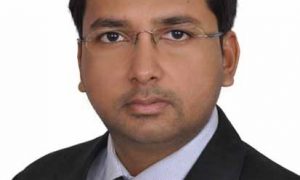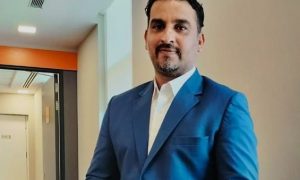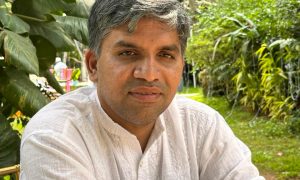This interview has been published by Namrata Singh and The SuperLawyer Team
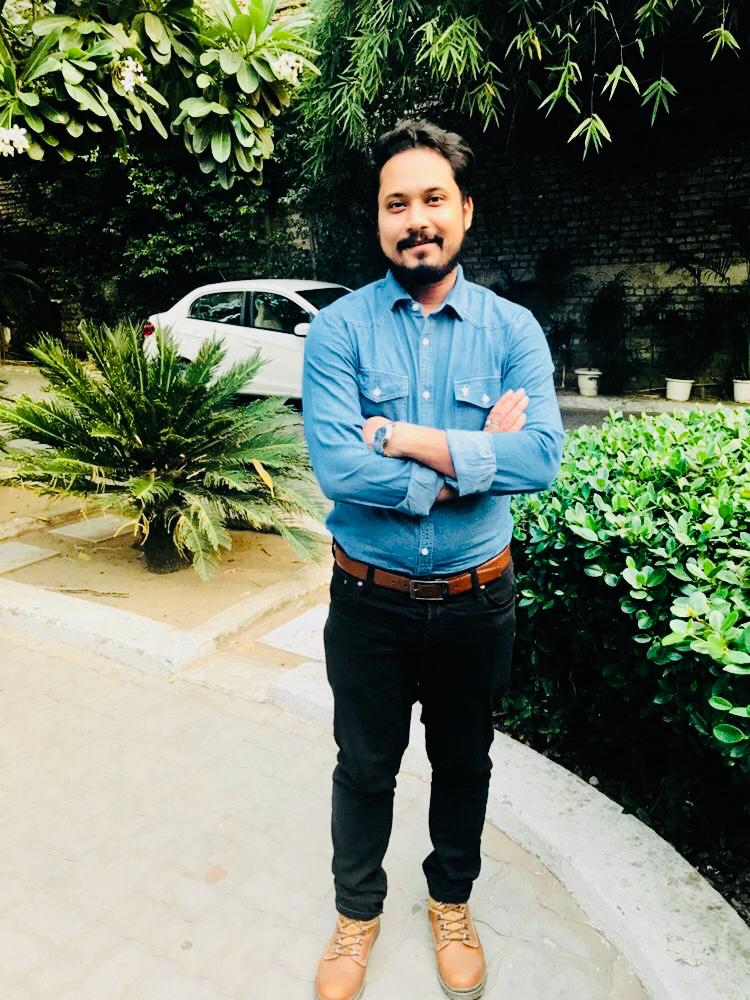
Thank you for joining us. Could you start by sharing a bit about yourself and your journey in the legal profession? What inspired you to pursue a career in law, and how has your journey unfolded until now?
Thanks for the kind invitation for this interview. Regarding my journey, I am just the second lawyer in my family after my uncle (who practices in the local district court in Assam), so I am a first-generation corporate lawyer. Law was a very interesting option, considering when I was completing my higher secondary education I wanted to explore a career in economics, but somehow the lure of Law especially the Intellectual Property Laws intrigued me along with a massive love for brands. I finally pursued my law from Hidayatullah National Law University, Raipur in 2009 with a major in Intellectual Property Laws. Since then, I have loved every bit of my journey in law. It all started in a boutique IP law firm in New Delhi (Zeus IP), where I learned the practical side of things and horned my skills in the domain. I loved the part that even being an associate I was given complete freedom to advise numerous multinational clients on IP issues. Post the same I moved to a bigger law firm, where I acquired some essential skills of handling big clients having massive IP portfolios. The change to in house role actually came in when I joined an IP consultancy that was working dedicatedly towards brand protection concerns, which is where I was fascinated with this version of IP i.e., enforcement of IP, this also coincided with one of my close aides who got impacted due to counterfeits and my whole perception changed and I wanted to then focus on enforcement of IP which explains my role at Diageo, Flipkart and Currently Western Digital. Protection of consumers and brands became my passion and I wanted to ensure that I do my bit towards this cause. It is such a strange world, where IP enforcement kind of came to me as an accidental or sudden thought and since then has stayed with me as a core of what I am passionate about and love doing as the famous saying goes ‘You never know what tomorrow will bring’ so you should always be prepared and embrace it with all your might.
From working with Diageo India to your current role at Western Digital, you’ve navigated various industries in brand protection. How do you adapt your strategies to suit the unique challenges of each industry, from eco-bev to consumer electronics?
It’s an interesting question as the industries I worked on are completely different having their own set of challenges and issues, but the learnings I gathered over the course of time specially during my role at the IP consultancy helped me build and develop a great core of what essentials are required for brand protection and IP enforcement. A few things that stand out to me would be looking at the problem and its impact on business, understanding the business model (from a sales and marketing perspective) identifying great business partners, market intelligence and data generation. These factors are common across industries and helped me immensely in adapting across industries.
Your passion for brand protection shines through in your extensive experience and achievements. What advice would you give to aspiring IP lawyers or brand protection professionals looking to make a mark in this field?
Thanks for your kind comments. I am grateful to the people whom I worked with who have been kind enough to bestow great knowledge. I would advise young lawyers who want to pursue a career in IP, should certainly explore this very interesting and passionate field of IP enforcement, unfortunately at this stage, it’s not being taught as an educational curriculum, so all the knowledge you can gather is through practical experience. I found this very fascinating considering that my stints across organizations from being support functions to being called revenue generators were a very satisfying experience. I would advise young law students to try and work towards IP enforcement during their internships especially those who plan to intern in FMCG companies, wherein they will realize the importance of this domain. I would also advise young lawyers to stay updated by doing additional courses in upcoming domains like cyber laws and other institutes offering such courses. Lastly, I would advise young lawyers and professionals to be very passionate about the work they do and know that they are creating an immense impact on the society as a whole. They should think with a clear motto of ‘PROUD OF WHAT WE DO’ and ‘BE GENUINE’ in their opinions and thoughts.
In addition to your professional endeavors, you’re known as a foodie and football enthusiast. How do you strike a balance between your career and personal interests, and how do your hobbies complement your work life?
Balance is a key term. Fortunately, due to my role, I used to travel extensively, which gave me a great opportunity to experiment and experience different cultures and their food, which was something I used to always look forward to. In fact, due to the same experience, I started travelling to places just to enjoy a delicacy, which gave me such happiness and satisfaction.
As regards football, it has taught me so much in terms of hard work, resilience, and risk-taking towards my everyday work which I am immensely grateful to. Both my interests are great conversation starters which certainly gives me a very good idea about the stakeholders I will be working with and helps create a personal connection with them. Lastly, one of the biggest things that you require in any professional field is great team spirit which helps you achieve the impossible and watching football showcases that in the best possible manner. There is a very famous quote by one of my inspirations from the footballing world Arsene Wenger who says “Team spirit is like a flower. You have to look after it every day or else it will slowly die. But, as well, you can make it bigger, better and prettier if you care for it.”
The Brand Protection Charter you established garnered recognition and accolades. Could you walk us through the process of creating such a comprehensive strategy and the impact it had on combating counterfeits and infringement?
This was a very challenging task, as when I joined there was no concept of Brand Protection at the organization. Hence I had to start from scratch in terms of creating structures that defined the said concept, then identifying current and potential problems that would fall within that followed by identifying relevant stakeholders who dealt with the problem and connecting with them to create a common group. This took a long time as I had to educate them about it and its grave importance. This was followed by documentation which led to the building of SOP which included clear guidelines defining the problem and stakeholders who were responsible, accountable, consulted and informed about it. This helped immensely in unifying all existing synergies and using them to solve problems for many brands. As a part of the program, I also reached out to a lot of rights holders or brands to build a spectrum of issues involved and how uniquely and swiftly we can solve them. This charter gave me immense satisfaction when we built it and I do hope the same helps in further evolving the program to new heights.
Your journey includes handling various legal matters, from drafting agreements to conducting raids and enforcing IP rights. What are some common misconceptions people might have about brand protection, and how do you address them in your work?
One of the biggest misconceptions that I have heard being an IP lawyer is that we only deal with IP litigations that involve IP infringement, which is not correct considering as IP lawyers we also do a lot of work around counterfeits which certainly can be done at various levels starting from Law enforcement authorities and customs as well. Additionally, IP lawyers were also part of a lot of interesting and detailed investigations that present different perspectives on a problem. Also, when you say brand protection it’s a very broad domain that is not only limited to IP issues but might involve other areas that involve the protection of brands. Lastly, the biggest one that I have heard is legal function is just a support function, but I can confidently say that during my stint across organizations, the biggest compliments I got were when the sales referred to us as revenue generators and business partners who can help them ensure a smooth sale of products. Brand Protection gives you a unique opportunity to be recognized as one of the important clogs in product life cycle machinery.
Being a certified Anti-Counterfeit Professional, you bring a unique skill set to your role. How do you stay updated with the latest trends and techniques in combating counterfeits and online IP infringements?
I would stay updated with the latest trends by attending various forums dedicated to IP and Brand Protection like INTA events, and IACC events to help immensely in building it. Also being part of sub-committees at INTA (who have dedicated people working on specific brand protection issues in emerging domains like e-commerce platforms and others certainly adds a lot of perspective around current practices and gives a huge amount of learning from them. I also look up to any dedicated programs that have been introduced by reputed institutions to upgrade and upskill myself in them.
As someone deeply involved in industry associations like INTA, how do you leverage these platforms to drive positive change in brand protection practices and policies?
I must say it does help a lot to be part of such Associations considering the impact they are creating. INTA is a great example, considering you can gain a lot of knowledge about current best practices for the issues handled, be part of policy dialogue with relevant stakeholders to drive policy changes and impart training to law enforcement officials on the same. I have leveraged the association to a great extent as I was the chair of the Anti-Counterfeit Committee in the 2022-2023 term for the South Asia region and achieved a lot of success in building best practices for the brand protection domain. Being part of the leadership group also provided an opportunity to tie up with other well-known brands towards the same cause and create many meaningful discourses.
Looking ahead, what do you envision as the future of brand protection, especially in the face of evolving technologies and global markets? And what role do you see yourself playing in shaping that future?
There is a massive potential for Brand protection especially with emerging technologies and global market expansion for brands across the world. When I joined the domain, I still remember there were very few multinationals who had dedicated brand protection professionals, teams and most of such work was done by IP and legal teams, in the past few years we have seen brands getting very aggressive about it considering the big important role it plays especially towards revenue generation. Efforts made by brand protection teams go a long way in ensuring revenue growth and great sales. The importance is also further highlighted by emerging problems that come with technology, especially with the advent of the Internet and online business.
In the bigger scheme of things, I would like to be the evolving face of brand protection professionals leading such initiatives with innovative solutions with the help of technology and helping businesses garner revenue growth while ensuring the end consumers enjoy and reap the benefits of using genuine products everyday everywhere.
Get in touch with Arindom Hazarika-

